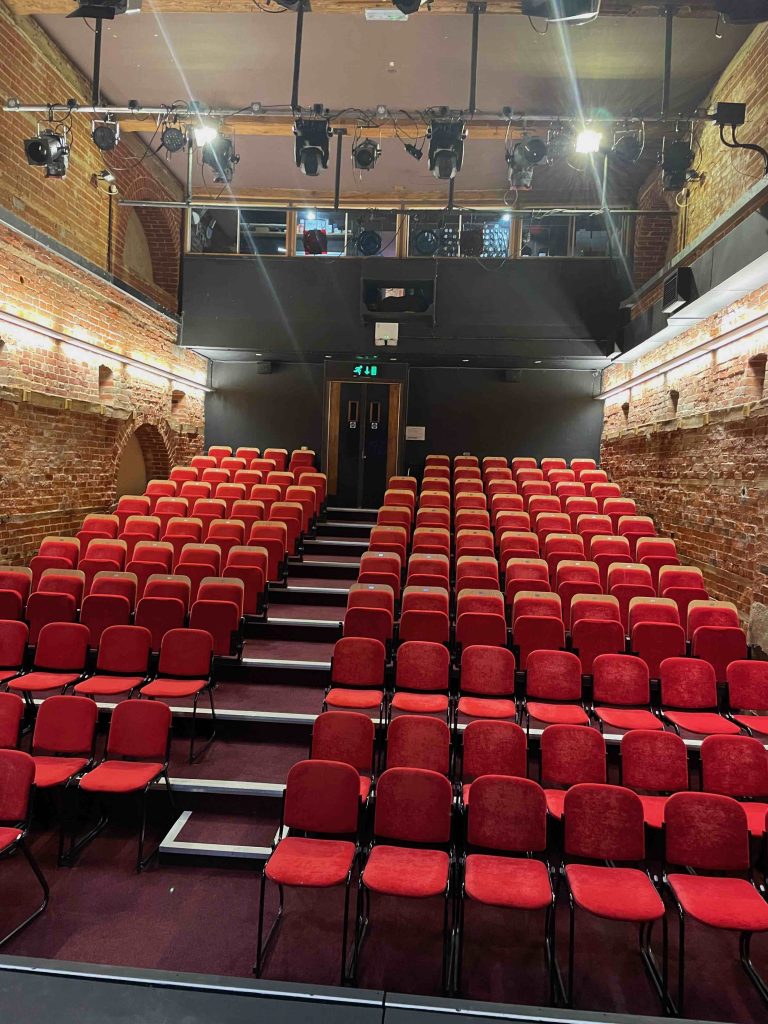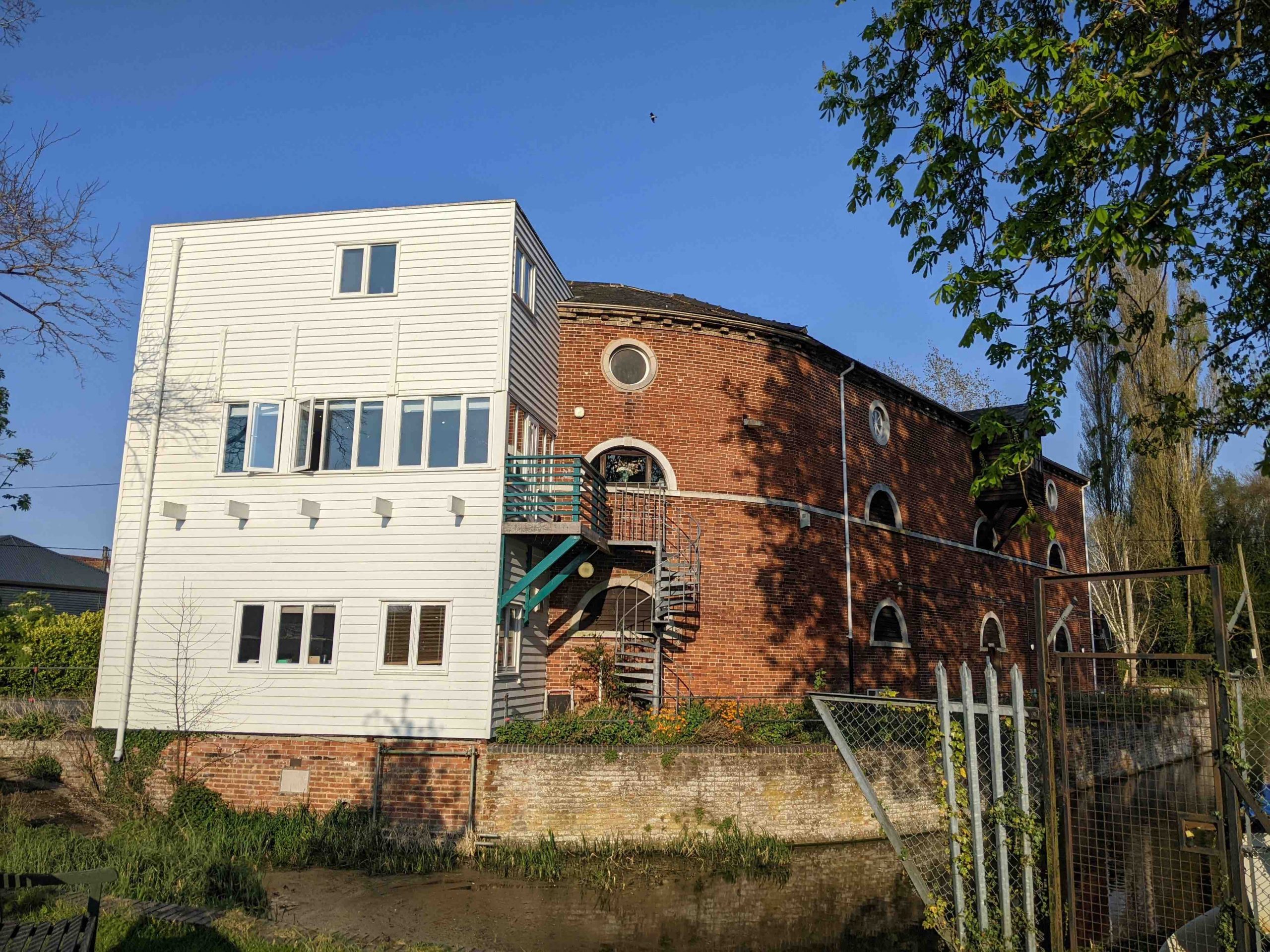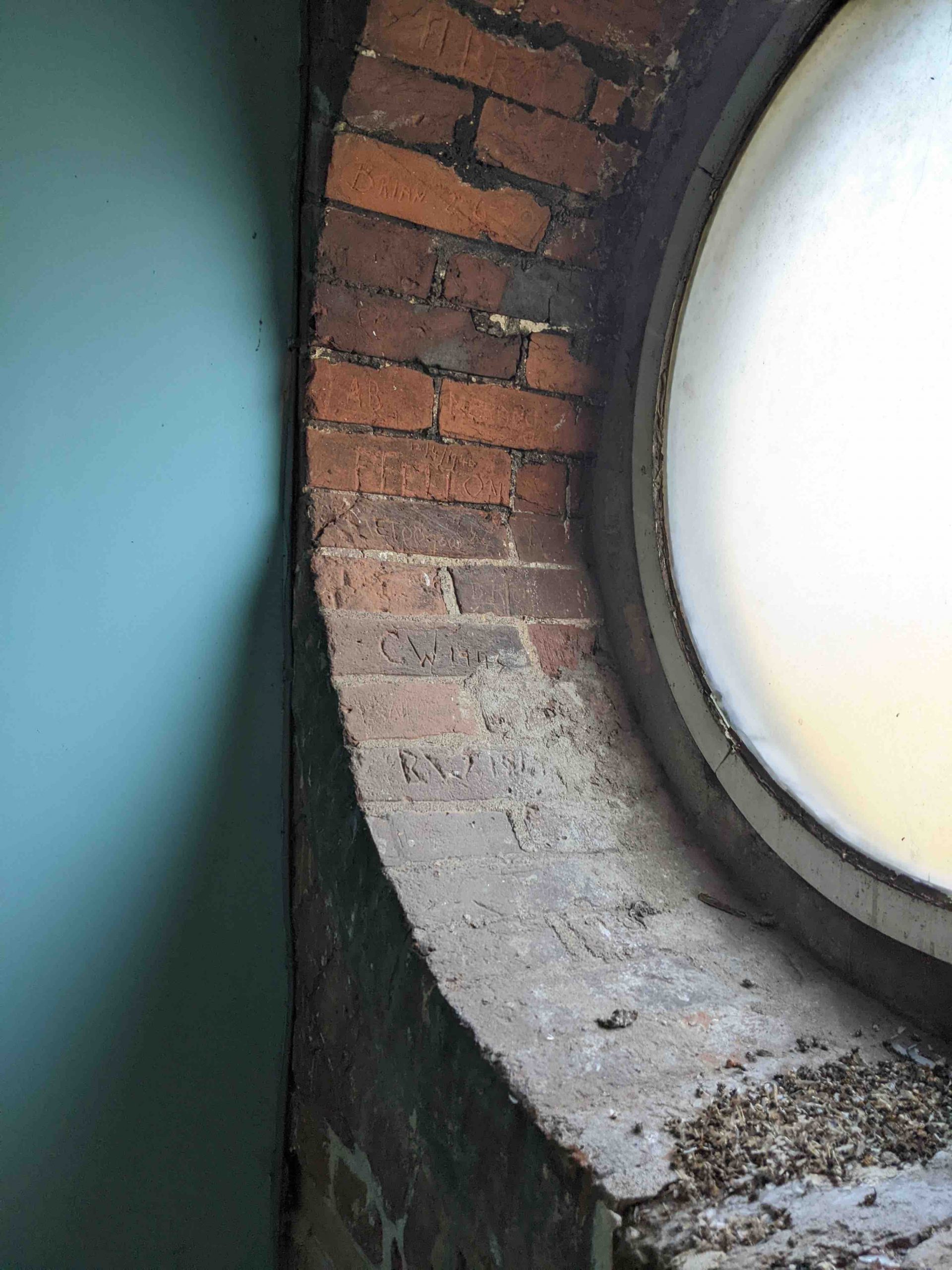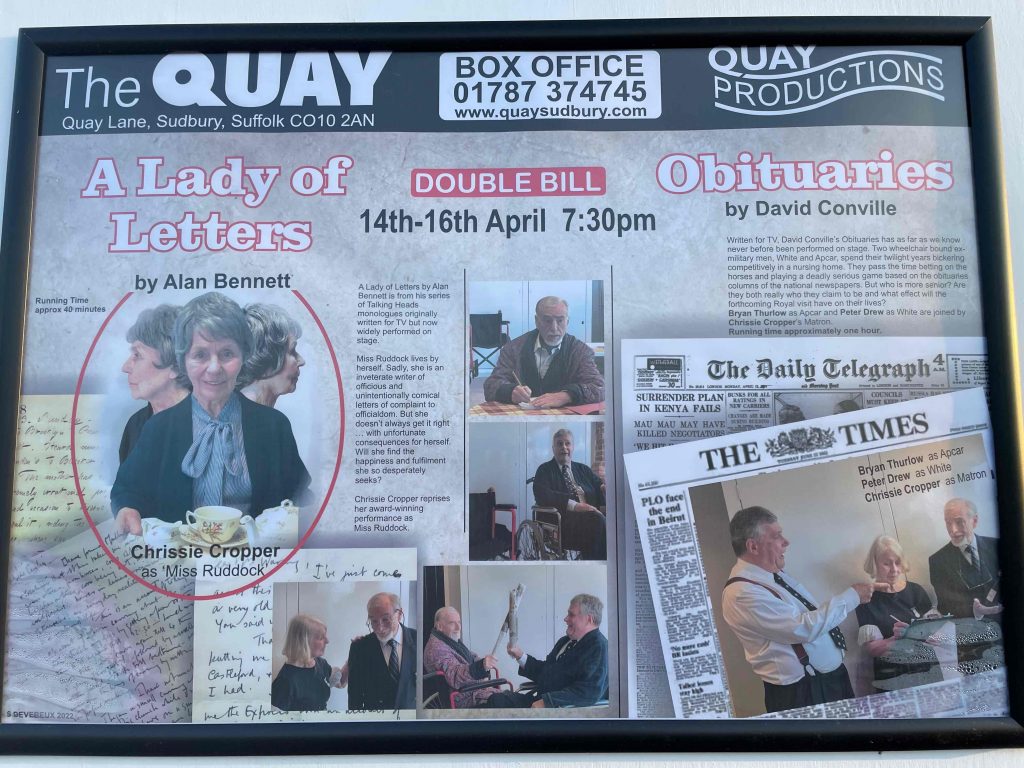Rachel’s Theatre Challenge reaches Sudbury – The Quay Theatre

A fascinating Grade 2 Listed building, by the River Stour, the Quay Theatre in Sudbury was, according to its website “ Once a run-down building by a rubble-filled section of water next to the derelict gasworks….…it began life in 1791 as the principal warehouse for The River Stour Navigation Company. The company went into liquidation in 1913, and the building was used as a store for bulldozers and cement mixers until 1977, when it was purchased by Sudbury Dramatic Society for £15,000.”
£120,000 was raised to convert the building into a theatre, which opened in 1981. As well as the Sudbury Dramatic Society, it became the home of other local groups, and touring professional theatre productions.
“Despite the success of fundraising for capital projects – almost £200,000 had been committed by the beginning of 1983 – The Quay Management Committee was running into deficit and monies had to be ‘borrowed’ from the capital fund to continue. In June 1983, following a report commissioned on the future structure of The Quay’s management, the Committee was split from the Sudbury Dramatic Society Committee for the first time.”
The Quay at Sudbury is now an independent charity and is the entertainment hub for the Sudbury area. A fundraising project ‘Quay 2000’ raised £200,000 in 2000 to maintain the structure and fabric of the building.
Groups such as the chess club, book club, musicals group and play reading group meet at The Quay and they host a children’s drama summer school. The small staff are supported by an army of volunteers.
Like all theatres, enforced Covid closures meant that the past couple of years have been challenging, but a £40,000 fundraising appeal and a government grant helped the Quay Theatre not only to survive, but use the enforced closure to make improvements ready for when they could reopen. A temporary theatre in a marquee on the carpark, kept the link with their audience who have eagerly returned to the full programme, albeit with the occasional cancellations of covid- hit tours.

The auditorium has new seating, which is raked up from the single winged stage. The plain brick walls, large barn-type doors and other glimpses of the buildings original function, lend interest. The refurbished upstairs bar isn’t large but is friendly, comfortable and overlooks the river and towpath.
The small paid staff are supported by valued volunteers, and the programme includes some amateur shows but also small-scale productions and some big names that value the professional set-up and those who take the opportunity to try out their material before touring. One night the Quay audience may see a rock show, the next stand-up comedy and the next the latest film release.
An intimate, friendly and slightly quirky 127 seat theatre, that is much loved and definitely worth a visit.



A Lady of Letters, a Talking Heads monologue (by Alan Bennett) and Obituaries (by David Conville).

‘A Lady of Letters’ is about Miss Ruddick (played by Chrissie Cropper), a monologue that has been on TV a couple of times but, written by Alan Bennett, is always worth seeing again. A spinster who lives alone after her mother’s death, passes the time writing letters, usually of complaint. Laugh out loud moments, such as when Miss Ruddick relates her thank you letters such as to the optician for reminding her of her need for an eye test, and to the Queen about dog dirt outside the gates of Buckingham Palace, give way to audience gasps when she writes to social services regarding the neighbour’s neglect of their child. It leads to a police visit and she is told that the bruised, unhealthy looking child actually has died from leukaemia, and the parents have been visiting the hospital and not were out partying every night, as she reported. The final scenes show Miss Ruddick transformed by the variety of opportunities and friendships that a spell in prison has offered her. Poignantly, that it is the happiest she has ever been.
On a simple setting with a few chairs, a table and a standard lamp, and individual areas lit as they are used, Chrissie Cropper, convincingly played Miss Ruddick with empathy, portraying both the humour and the pathos to an appreciative audience.
‘Obituaries’
Telling the story of two retired military men in their care-home, in ‘Obituaries’ we see them in a traditional bedroom setting with table and chairs, and with French doors onto opulent grounds.
The play shows the ingenious ways the men pass their time: competitively scoring The Times obituaries for phrases such as ‘died peacefully’ or ‘died suddenly’, and deliberately writing extravagant and untrue obituaries for each other ready for their own demise.
Apcar (played by Bryan Thurlow) is an upright military man in a Noel Coward style dressing gown, while White ( Peter Drew), is a retired banker, is a Churchillian-wheelchair user. The men are upset that a Royal Princess is visiting the care home, but they have not been chosen to be part of the receiving party. When Matron (Chrissie Cropper) needs one of them to replace a deceased resident and meet the Princess, the men’s friendship is torn apart by their cheating and rivalry, which includes wheelchair jousting, with rolled newspapers… and then the true stories of their lives is revealed.
Although both plays were gentle and neither was fast-moving, ‘Obituaries’ was always going to face a challenge following the masterful writing of Alan Bennett. We felt the playwright could have halved the lengthy reading of both The Times entries and the false obituaries, and still have made an interesting and amusing portrayal of the ingenuity of the men’s ideas of how to pass relieve the boredom of their lives.
The sign of a good night at the theatre is when the conversation about the production/s continues on the journey home!
14- 16th April, 2022